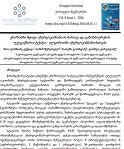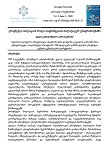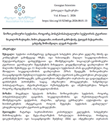Key Employability Skills
Downloads
There are suggestions that employers are usually dissatisfied with the lower levels of skills graduates have before starting employment. There also appears to be a debate among different stakeholders about how teaching and learning institutions prepare graduates. The aim of this paper is to identify what employers perceive employability to mean and what are appropriate work skills that correspond with it. Empirical analysis done by famous researchers was analyzed and the results indicate that while employability skills could be identified, there was no clear what universities need to provide in order for graduates to gain important employment.The findings suggest that while the stakeholders are concerned that graduates starting employment may lack certain employment skills, they still base their hiring decisions to take on graduates upon an historical perspectives of employment skills developed overtime, without taking into account the future requirements of ‘employment’, the possible challenges of an increasingly competitive economy and other possible labor changes which could be considerable and as yet, very much unknown. This study tries to make a contribution to research on employability by recognizing the gaps that may exist between employers and graduates and any incongruence in understanding of what ‘employability’ means and which employability skills might take significance.
Downloads
Harvey, L. & Knight, P.T. (2005). Briefings on employability: Helping departments to develop employability. York, England: ESECT
Fallows, S., & Steven, C. (2000). Building employability skills into the higher education curriculum: A university-wide initiative. Education and Training, 42, 75-83
BBC News, (2007) Many graduates 'lack soft skills' 30th January. http://news.bbc.co.uk/1/hi/education/6311161.stm
Dearing Report, (1997).The Dearing Report. Higher Education in the Learning Society
Hillage, J. & Pollard, E. (1998). Employability: developing a framework for policy analysis. Research Report RR85, Department for Education and Employment. (London, DfEE). http://www.employment-studies.co.uk/pubs/summary.php?id=emplblty
Rae, D.(2007). Connecting Enterprise and graduate employability challenges to Higher Education Culture and Curriculum. 49(8), 605
CBI (2011). Boosting employability skills [Online]. Available at: http://www.cbi.org.uk/business-issues/education-and-skills/in-focus/employability/
Cox, S. & King, D. (2006).Skill sets: an approach to embed employability in course design, Education and Training, 48 (4), 262-74. (Cox & King, 2006)
Rothwell, A., Jewell, S. &Hardie, M. (2009). Self Perceived Employability; Investigating the responses of Post Graduate Students. Journal of Vocational Behaviour, 75, 152-161.
Economic Forum’s (WEF) published Future of Jobs Report of 2019
https://www.weforum.org/reports/the-future-of-jobs-report-2020/

This work is licensed under a Creative Commons Attribution-NonCommercial-NoDerivatives 4.0 International License.


























































































































































































































